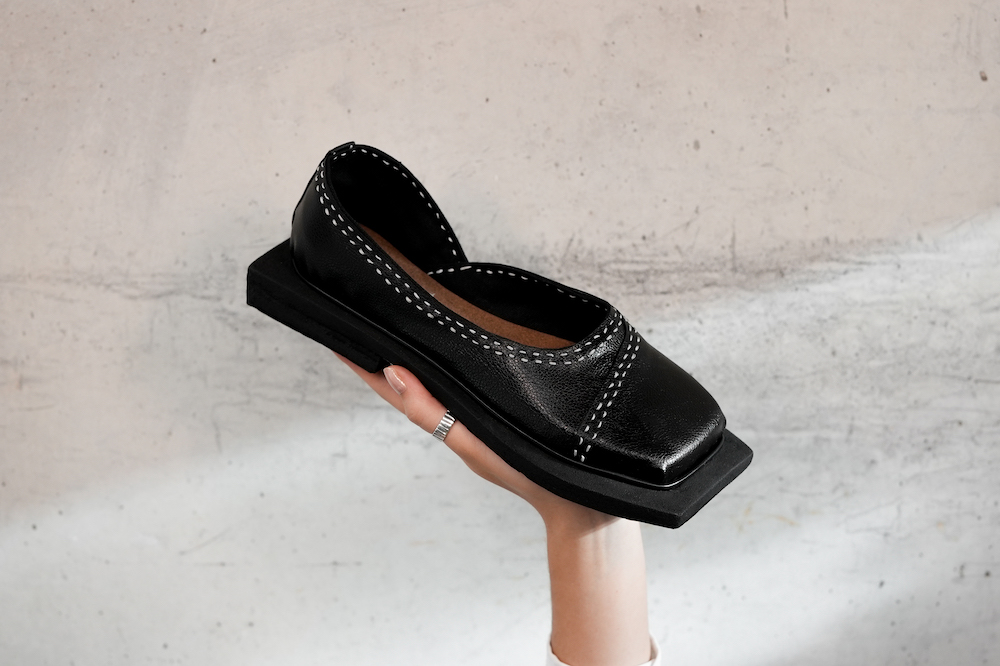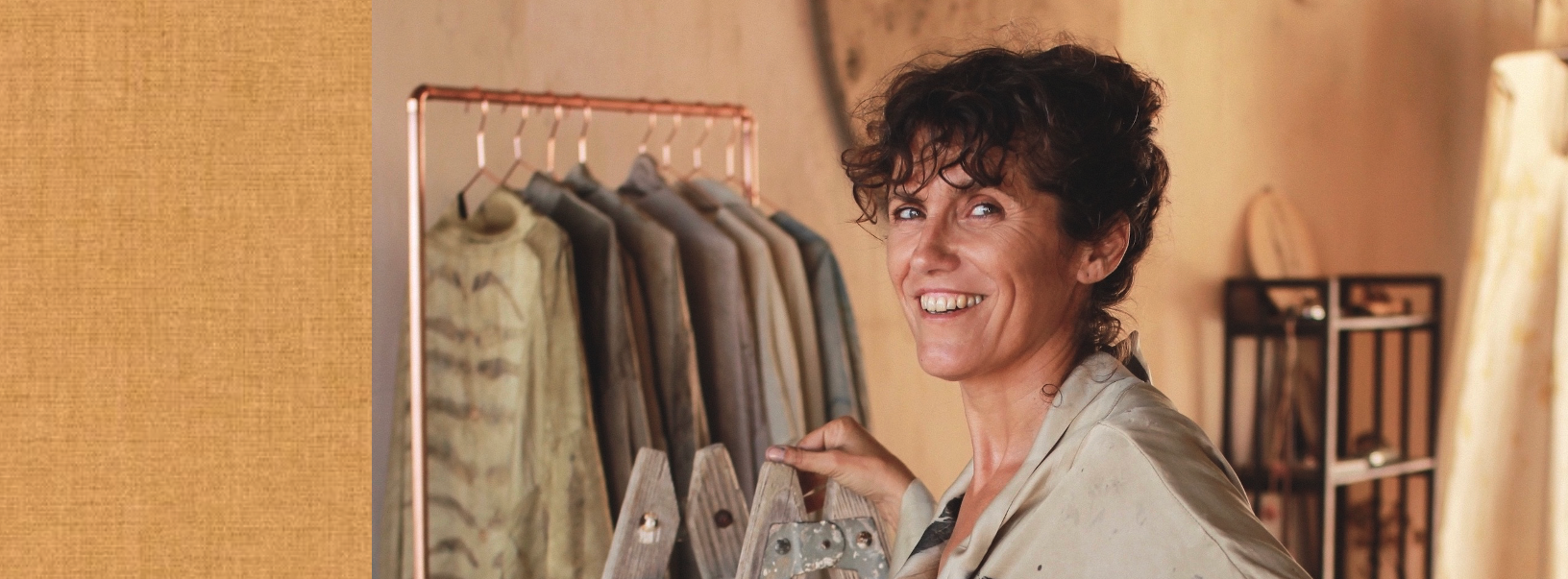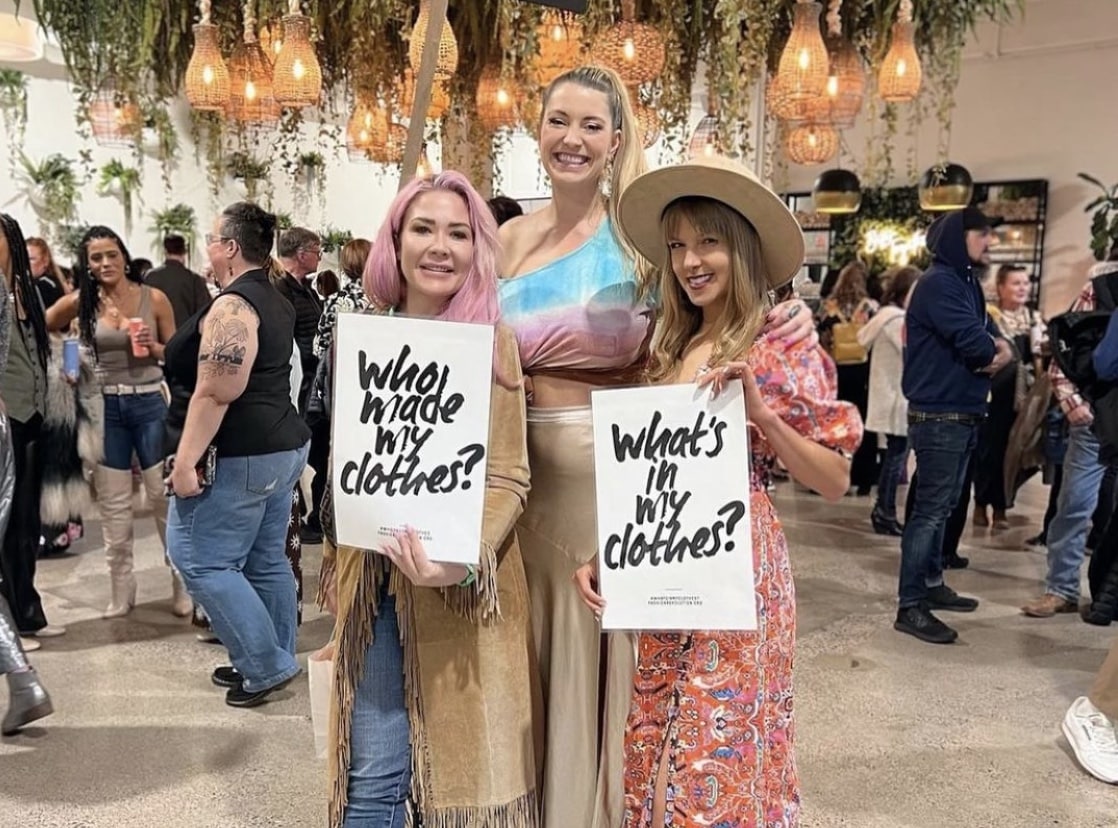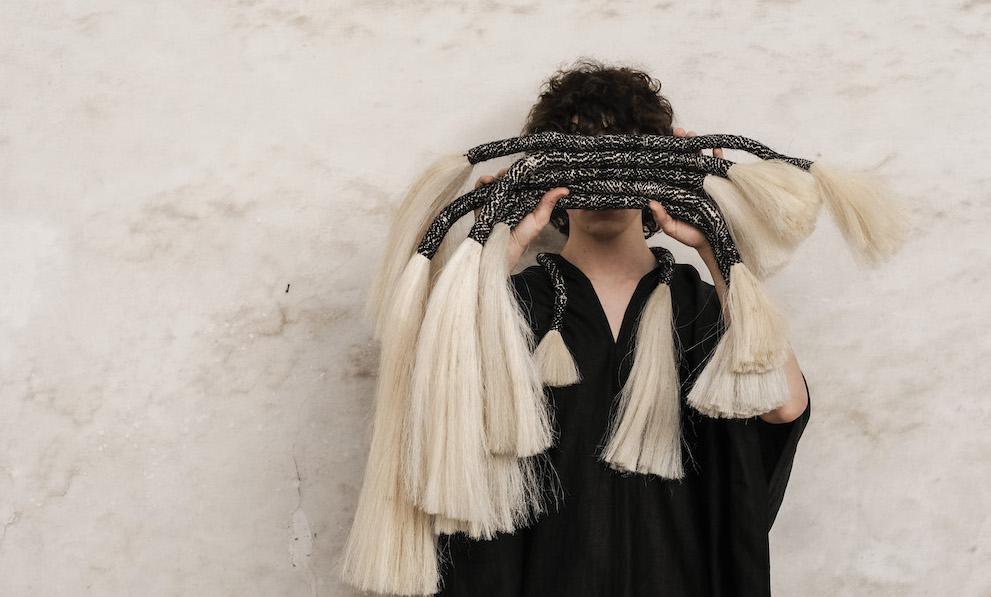Michela Puglia is a design engineer focused on transforming the footwear industry through sustainability and waste reduction. With an MEng in Design Engineering from Imperial College London, she draws on her diverse cultural background and professional experiences to fuel her creativity. In this interview, she discusses her innovative footwear concept, Angelis, and her dedication to promoting a circular economy in fashion. Michela’s multicultural heritage—being half Italian and half Brazilian—and her experiences in England, Italy, and Germany shape her unique design perspective as she aims to create a more sustainable future in footwear.

Michela Puglia
Could you share your educational and professional journey?
I studied Design Engineering at Imperial College London, where I completed a four-year integrated Master’s degree, graduating in the summer of 2024 with an MEng.
During my studies, I interned for six months at Adidas HQ in Germany, working as a Footwear Computational Designer and Engineer. This role combined consultancy and research and development, allowing me to collaborate closely with product teams in Football and Running. My focus was on streamlining and automating manual design processes, along with researching emerging technologies like 3D printing in textiles.
For my final-year project, I partnered with Arda Biomaterials, a startup dedicated to transforming waste plant proteins into sustainable biomaterials for various industries, including fashion and automotive. This collaboration led to the creation of Angelis! After graduating, I continued with Arda as a Junior Design Engineer, where I’m involved in branding, preparing customer samples, and developing showcase pieces like wallets. It’s an exciting time for me, as I’m just at the beginning of my professional journey.
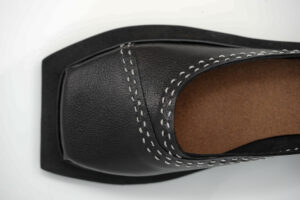
What does sustainability mean to you?
Sustainability is a multifaceted issue that demands a comprehensive approach. It extends beyond just using sustainable materials; it’s about considering the entire lifecycle of a product—its creation, usage, and disposal.
“The fashion industry, in particular, operates on a linear economy focused on trends and short-term use. This leads to unsustainable practices resulting in environmental damage and ethical concerns, from production methods to labor conditions, ultimately harming both the planet and its people.”
I believe transitioning to a circular economy can address these challenges by designing products for longevity, reuse, and recyclability. However, this shift will require collaboration across the entire supply chain—from producers and designers to consumers and policymakers. I’ve explored this topic extensively during my studies and co-authored a paper published in Resources, Conservation & Recycling, which discusses how policy can guide the EU fashion industry toward a circular economy and introduces a tool for policymakers to identify gaps in existing regulations.

You developed Angelis, a footwear concept made from whisky waste. What inspired this innovative idea?
Angelis originated from my final-year master’s project. After my internship at Adidas, I wanted to apply my industry insights to my thesis. I was particularly disheartened by the unsustainable practices in the footwear sector, especially the significant amount of non-biodegradable waste and the use of toxic materials.
In my search for a collaborative partner focused on sustainability, I discovered Arda Biomaterials. Their transformative work in converting waste from breweries and distilleries into biomaterials inspired me to focus on whisky byproducts, exploring how they could replace petroleum-derived components in footwear.
My research revealed a gap in the market: while there are commercial biomaterials emerging in footwear, they often only address a few components, leaving the rest reliant on unsustainable materials. Many conceptual designs by students and independent designers were futuristic but required new manufacturing techniques and a shift in consumer mindsets, making them difficult to implement.
With Angelis, I aimed to bridge this gap by creating a fully biomaterial shoe that could be integrated into existing production methods. I utilized New Grain™, Arda Biomaterials’ first innovation, a leather-like material made from waste grain protein that is both plastic- and animal-free. For the other components, I developed materials for the insole, outsole, and adhesive—often overlooked in footwear manufacturing. My intention was to create a shoe that is not only sustainable but also appealing to consumers, balancing environmental considerations with practicality.
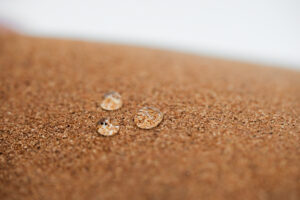
Can you describe your creation process?
The creation process was a journey of trial and error! There were two main components: developing new materials from whisky waste and designing the shoe itself. The materials had to meet specific requirements for functionality as insole and outsole components, which was a steep learning curve for me, given my engineering background and limited chemistry experience. Thankfully, the team at Arda Biomaterials provided invaluable support throughout the lab work and material development.
The second aspect involved designing the shoe. I developed the upper pattern, created molds for the insole and outsole, and reshaped the shoe last to align with my design vision. Finally, I employed the board-lasting technique to construct the shoe. Although I gained insights into footwear development during my time at Adidas, this was my first hands-on experience, making it both fun and challenging!
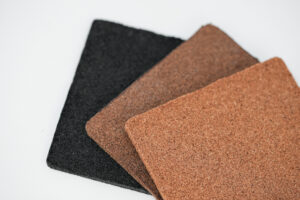
Do you have any upcoming projects related to the fashion industry?
Currently, I don’t have any specific projects lined up as I plan to take a career break to travel for a few months later this year. After jumping straight into work post-graduation, I’m looking forward to exploring new places and recharging. However, when I return in September, I’ll be actively seeking new opportunities in the fashion and footwear industries.
Words : Michela Puglia / Anne-Sophie Castro
Visit Michela Publia’s website
More information about sustainable fashion in our magazine

